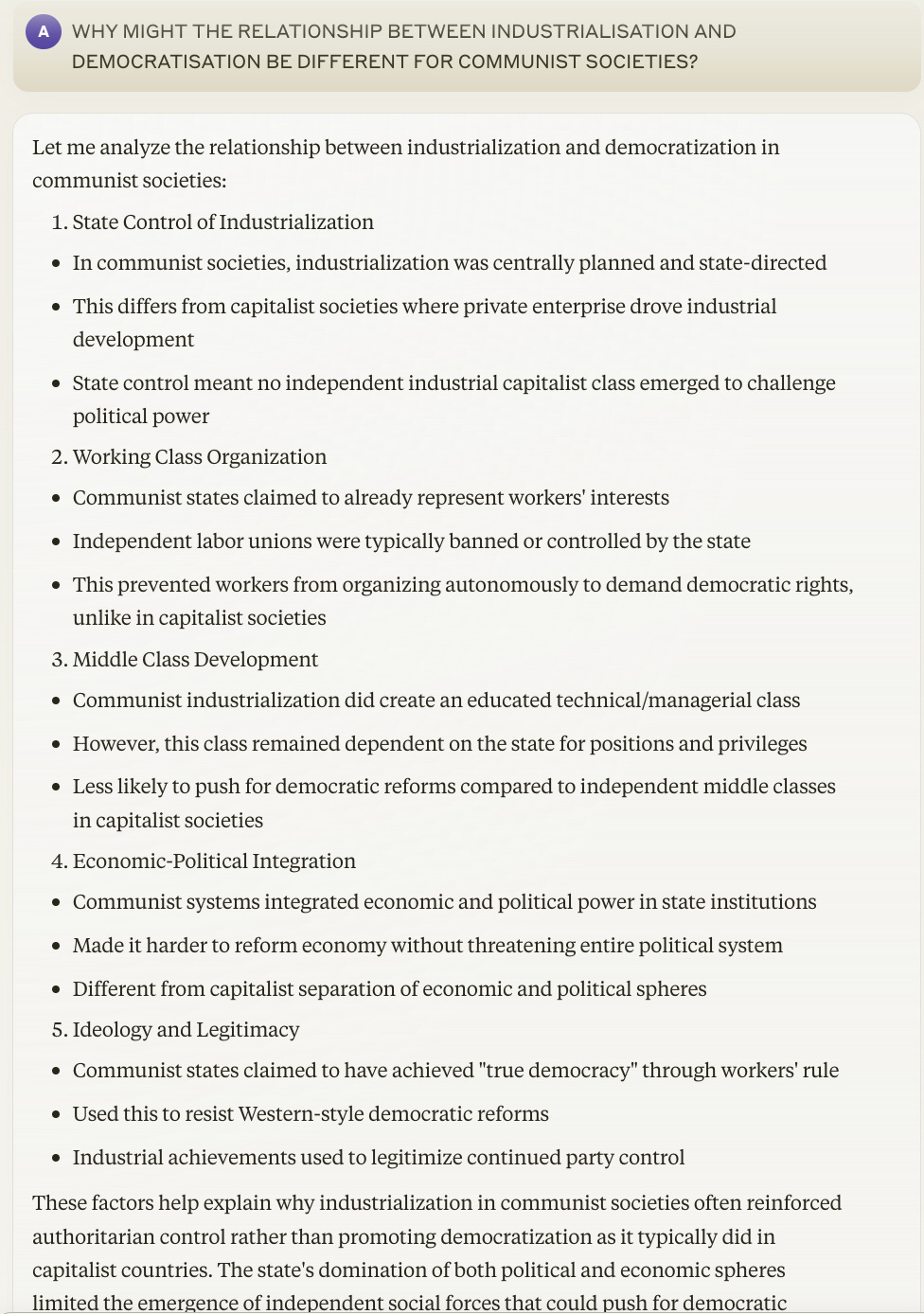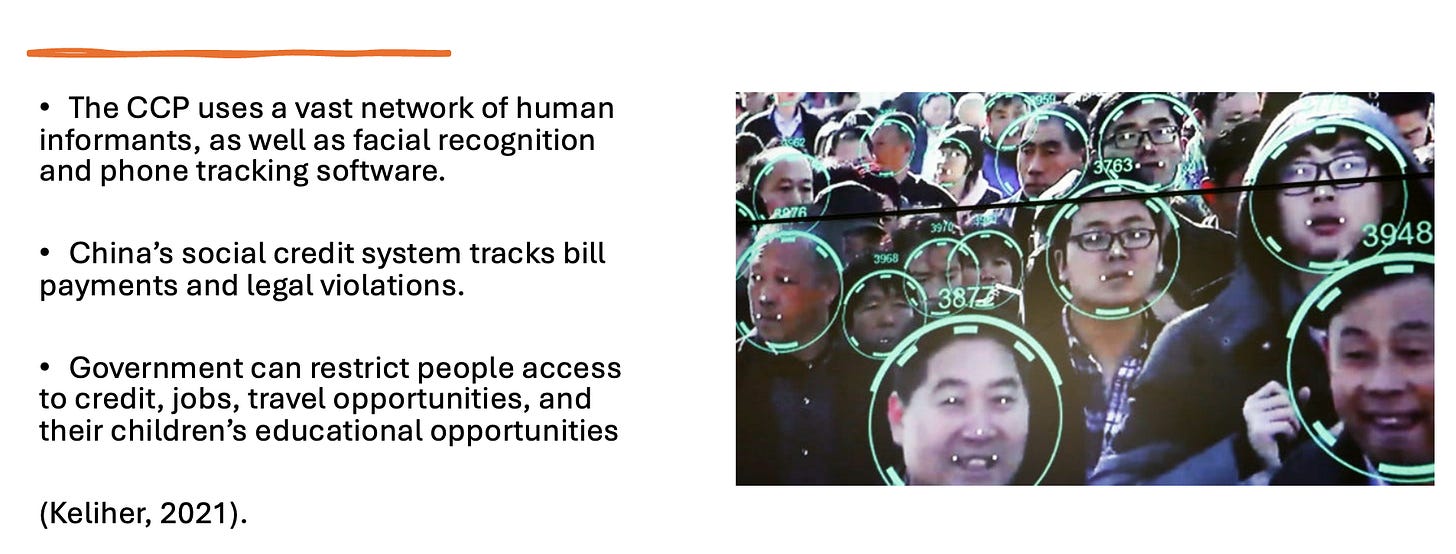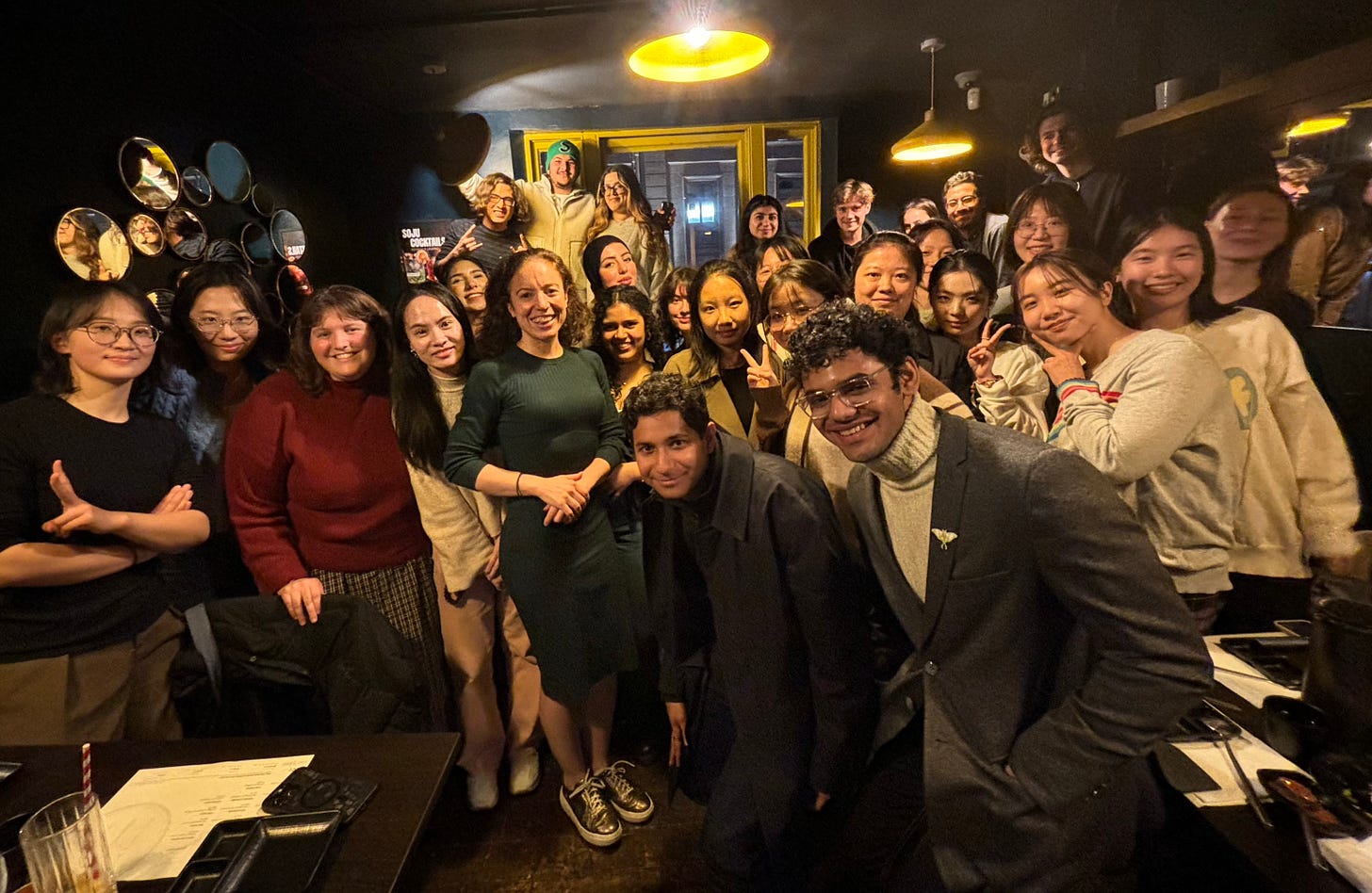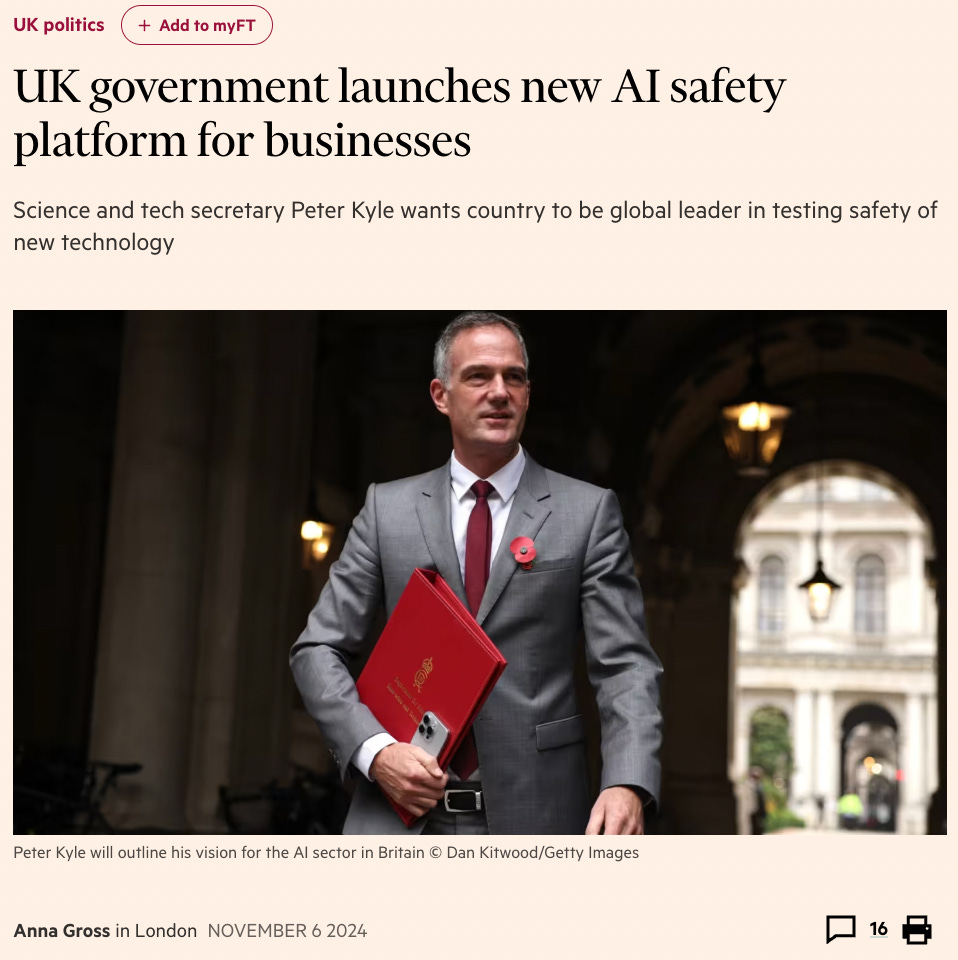I want my students to be at the technological frontier - effectively harnessing new innovations. While some students are already adept at using Generative AI, others express hesitation and uncertainty. Worldwide, women are 25% less likely to use these new technologies. Given that AI can massively enhance productivity and is increasingly sought by employers, such scepticism may actually hurt their job prospects.
To level the playing field, I directly incorporate Claude into my lectures. Ultimately, my goal is to demonstrate its value, build confidence, and signal permissibility.
Now let me share an example from today’s classes - respectively with undergraduates and postgraduates.
Brainstorming with AI
Today’s lecture focused on why some countries have democratised while others remain authoritarian. We explored various theories, including Sam Van Noort’s research on industrialisation and democracy. His key finding: the share of manufacturing employment is positively correlated with democratisation.
Students read this text alongside Hagen Koo’s fantastic book on the Korean workers’ movement.
Slides below
Interactive Learning with AI
Now, I want to push my students to consider how the political effects of industrialisation might be mediated by Communism.
I structured the exercise in several steps:
Paired Brainstorming: Students worked in pairs to draft essay plans on: “How might Communism affect the relationship between industrialisation and democratisation?”
Plenary Discussion: We explored their ideas as a class, with me providing feedback and further analysis.
AI Integration: I demonstrated how to pose these same questions to Claude, showing students how to:
Request specific feedback
Iterate on their ideas
Compare AI responses with their own analysis
Claude not only echoed points we had already discussed, but also added further examples and apt references. Students are then encouraged to read the recommended books!
Expanding the Discussion
Returning to my lecture slides, I shifted to contemporary challenges:
Premature deindustrialisation
Technological surveillance
After my lecture presentation, I showed my students how to ask these same questions to Claude.
“We Want to Be Masters of Technology”
By incorporating AI directly into my lectures, we can help our students:
Learn how to use AI effectively
Craft strong prompting techniques
Gain confidence through hands-on experience
Value AI as entirely legitimate.
This integration serves several purposes. In the short term, it’s a fun form of active learning: asking questions and getting immediate feedback. Students also prepare for assessments, where they have full freedom to use AI. More importantly, they develop crucial skills for the modern workplace, where AI literacy is increasingly valued.
Frankly, I want all my students to be at the technological frontier - whether they are strengthening ‘digital democracy’ or pursuing careers in Law. If Britain wants to ramp up productivity or pioneer AI safety, we need to be technologically savvy. Universities - as centres of learning - can serve as powerful catalysts, enabling students to leverage AI to push the boundaries of innovation.
Finally, because learning is fundamentally a collective endeavour, sharing and learning from each other, we all went out for dinner. And took over an entire restaurant! 😀


















It looks to me like AI will be able to create up-to-date textbooks in any subject on demand. The AI samples you gave read very much like summaries and bullet points from a textbook. I'm not a scientist, I''m a philosopher who has decided to stay away from AI. I've queried Chat GPT on some philosophical subjects and I admit to being impressed. But for me my journey of understanding involves reading lots and lots of books by contemporary and ancient philosophers and then going my own way. It seems that AI is not a real voice, but more like a handy summary of all the voices out there. In my opinion nothing takes the place of actually reading the books, but I don't mean textbooks, I mean books written by philosophers.
The only downside I see is having to verify everything to sort out what’s a hallucination and what’s not. So long as it’s only one source of information in the study practice, it could be helpful.